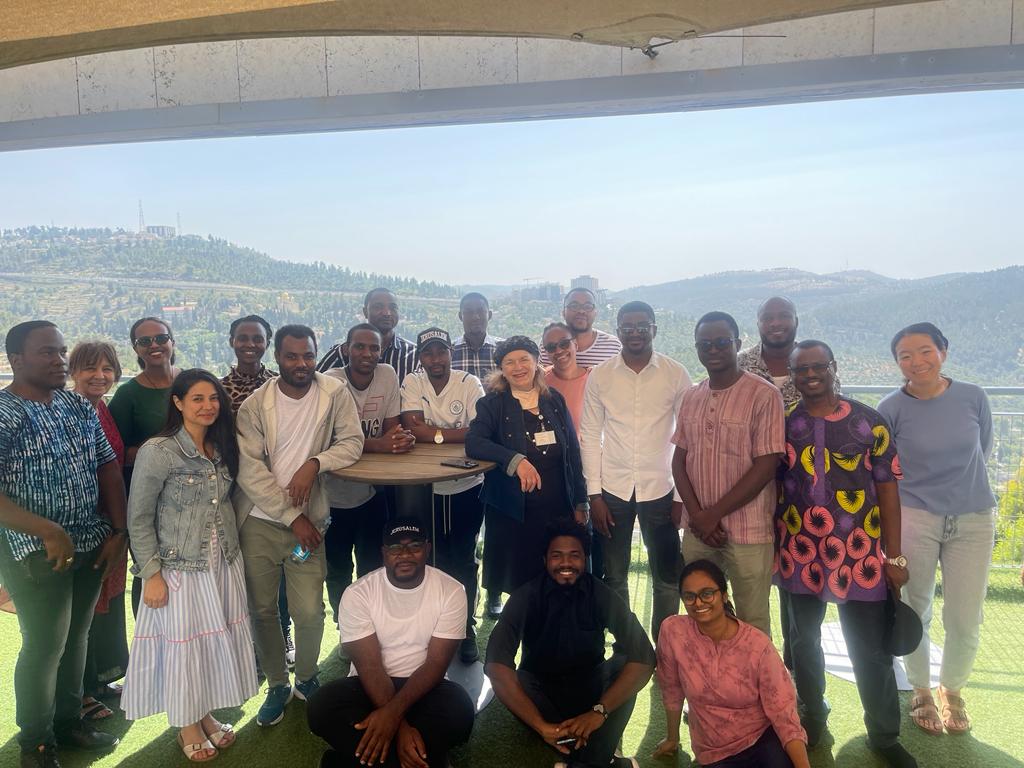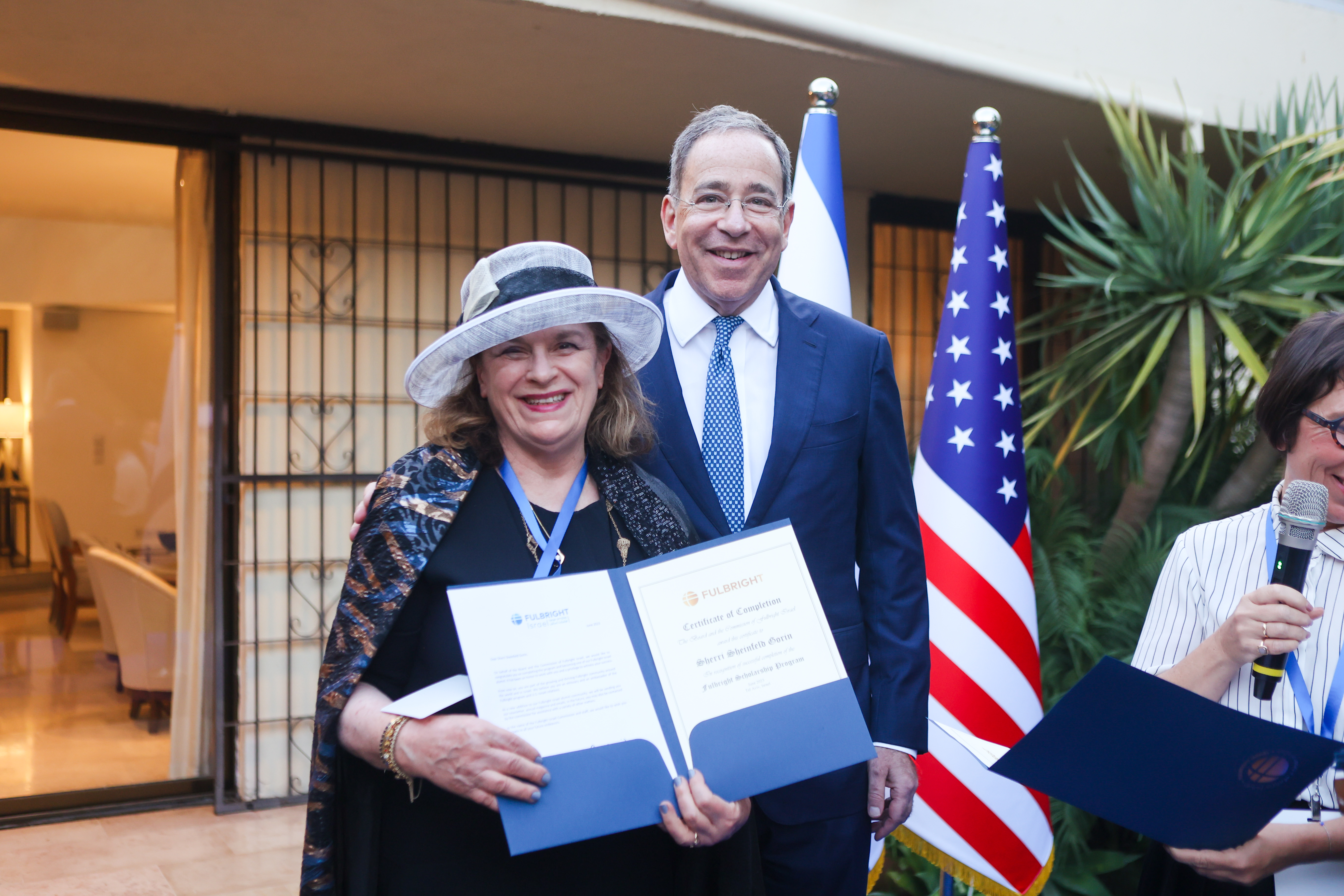Research Professor Sherri Sheinfeld Gorin, Ph.D., a leading global voice in support of the Human Papilloma Virus vaccine to prevent not only cervical cancer but other cancers that can be triggered by the virus, said she has made strong inroads in promoting uptake of the vaccine while conducting Fulbright Scholarship work in Israel earlier this year.
Sheinfeld Gorin, faculty member in the Department of Family Medicine at the University of Michigan, spent the Spring 2023 semester collaborating with colleagues of Hebrew University-Hadassah Braun School of Public Health and Community Medicine. This included meeting with leaders of the Israeli Ministry of Health, and the Israeli Medical Association who facilitated her access to HMOs, healthcare providers, the Israel Cancer Association, the military, the national immunization registry, the United Nations Relief and Works Agency for Palestine Refugees in the Near East, and potential patient participants for her study on ways to reduce HPV hesitancy within the country.
Specifically, she focused on the reluctance or refusal to vaccinate at multiple levels: policy, within the community (including schools), among healthcare organizations, providers, and provider teams, caregivers/parents, and young people, despite availability of the vaccine.
“Primary care is done well in Israel and there are a lot of opportunities within preventive health care” to promote HPV vaccine uptake, she said.
Sheinfeld Gorin connected with representatives of all four HMOs, and the Israel National Program for Quality Indicators in Community Healthcare (QICH). The QICH influences whether the HPV vaccine becomes a part of the system of quality indicators, which has bearing on how the HMOs are monitored and evaluated by Israel’s Ministry of Health and the public. Making the HPV vaccine a part of the quality indicator system could take up to three years but in doing so, it will set the direction for the HMOs and has the potential to establish new policy for the administration of the vaccine.
“I was able to really identify and talk to the major stakeholders,” she said. “By speaking to stakeholders for the HPV vaccine across Israeli society, I was able to identify gaps in vaccination monitoring, as children grow to adolescence, and into young adulthood. I proposed some feasible approaches to filling these gaps, across diverse systems and sub-populations.
Israel’s HMOs are currently establishing an effective tracking system to determine who has received the vaccine and who has not. Sheinfeld Gorin said she intends to maintain her connections with her Israeli contacts to continue working to promote the vaccine and improve cross-sectoral vaccine monitoring.
She added that the HPV vaccine is mainly administered through Israeli schools, which she describes as a particularly effective distribution channel. However, there are certain barriers to vaccine uptake, including within conservative Arab and ultra-orthodox Jewish schools, some of which have refused to administer the vaccine. Myths also surround the vaccine, including the idea that administering the vaccine in young people will lead to sexual promiscuity. She is looking for ways to de-sexualize the vaccine and to overcome those barriers.
In addition to interviewing key healthcare stakeholders in her research work, Sheinfeld Gorin said she gave numerous lectures around the country. She delivered invited graduate presentations about HPV and the vaccine, cervical cancer, HPV prevention measures in women and children, and COVID’s effects on cancer.

Additionally, she participated in Hadassah’s International Master of Public Health program, which trains physicians – many of whom are primary care doctors concentrated in sub-Saharan African countries – about the vaccine and how they can implement it in their respective countries.
“I presented to family medicine leaders, both faculty and students,” she said. “I was thrilled to focus on the HPV vaccine and to influence a group of people who set up the quality indicators for the HMOs in Israel, and to students who will become the future healthcare leaders in their home countries.”
Sheinfeld Gorin also said that her time in Israel has given spark to new research projects she would like to move forward, including implementing policy approaches to increase HPV vaccine uptake internationally, and studying the most effective way for healthcare providers to speak to young people about receiving the HPV vaccine.
“The trip to Israel enriched me creatively in my research idea development,” she said. “I gained a lot from my colleagues and students. This set me on a path to allow me to do the work that I hadn’t considered doing before now.”
She also hopes to build stronger ties between the University of Michigan, Hebrew University, Hadassah Braun School of Public Health and Community Medicine, and Hadassah Hospital.
“We are all interested in collaborating. Champions are critically important” to increase HPV vaccine uptake in the country and on a global scale, she said. “The networking I did will help to move this forward.”



